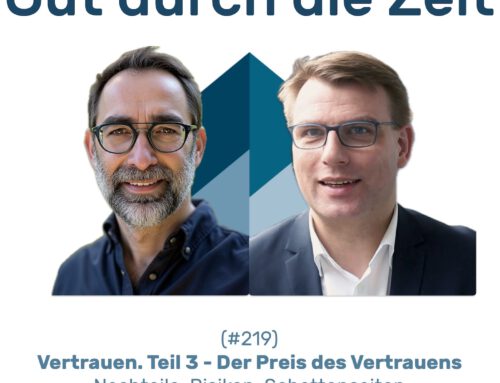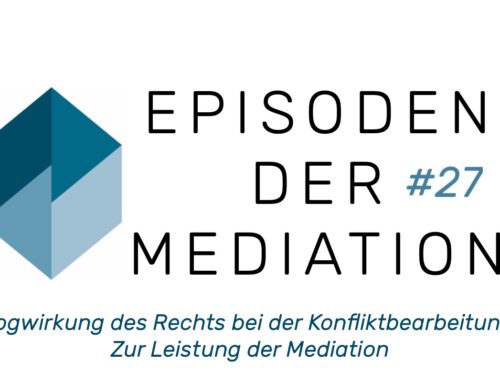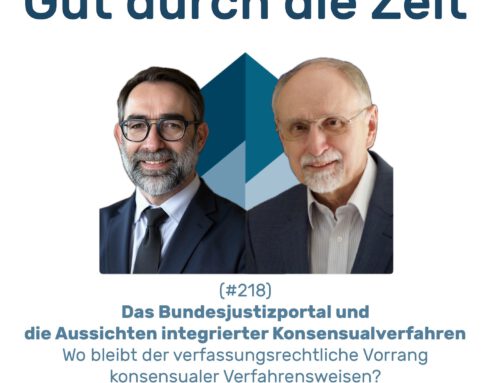INKOVEMA Podcast „Well through time“
#198 – Pitfalls of mediation. The example of peace mediation.
With comments on peace initiatives in the context of the Russian war of aggression against Ukraine
In conversation with Dr Günther Baechler
Dr Günther Baechler, diplomat, OSCE Special Representative and peace mediator: Initially studied art and art history in Basel, then political science, history and international relations at the Free University of Berlin.
- From 1988 to 2000 he headed the Swiss Peace Foundation (swisspeace) in Berne.
- In 2005, he was appointed by the Federal Department of Foreign Affairs to the Mediator in Nepal appointed.
- From 2007 to 2010 he was Special envoy in the Darfur conflict active.
- From 2010 to 2015, he served as Swiss Ambassador to Georgia.
- Since January 2016 he has been OSCE Special Representative for the South Caucasus
Well through time.
The podcast about mediation, conflict coaching and organisational consulting.
Chapter of the conversation
Summary of the conversation
Mediation faces a number of challenges in practice. I, Sascha Weigel, have invited the experienced peace mediator and expert Dr Günther Baechler to talk about these complex facets of mediation, particularly in the context of international conflicts. Mr Baechler brings with him a wealth of experience from his long career as a mediator and peacemaker, dating back to the confrontations of the 1990s and thus to the beginnings of mediation. Modern mediation goes back.
In our conversation, we reflect together on the beginnings of modern mediation and the initial euphoria that accompanied the hope of resolving conflicts sustainably through dialogue-based approaches. Mr Baechler describes how he worked in various crisis regions, particularly in Africa, in the early years after the fall of the Berlin Wall and the end of the East-West conflict. The focus at that time was on combining traditional conflict resolution mechanisms with modern mediation approaches. This combination was crucial in developing solutions to complex resource conflicts that arose in various communities, particularly between farmers and nomads.
Over time, however, the image of mediation has changed. Mr Baechler shares his observations on the current challenges facing mediators in today's often polarised and emotionally charged political landscape. In this episode, we discuss the dark side of mediation and the critical reflection on how much pressure there is on conflict parties today to sit at mediation tables while unequal power relations often operate in the background.
A central topic of the discussion is the Question of the extent to which an offer of mediation by third parties can exert pressure, especially in conflicts in which a Clear inequality between perpetrator and victim exists. We shed light on how such offers can not only be perceived as a step towards a solution, but can also be a way of used manipulatively by the stronger party in order to improve their own Improve public image or the weaker party under further pressure to set.
We also discuss the role of the international community in conflicts such as the one between Russia and Ukraine and reflect on the conditions under which mediation can be useful. Mr Baechler warns that the current geopolitical situation and aggressive tactics pursued by various nations often severely limit the possibilities for non-violent conflict resolution. This leads to a sobering reality where mediation may not be the appropriate tool in cases where trench warfare prevails.
The discussion concludes with an urgent reminder to be mindful and a realistic understanding of the possibilities and limitations of mediation. Mr Baechler and I agree that in today's world, mediators should not only focus on the positive elements of their work, but also recognise the reality and complexity of the conflicts in which they are involved. So in this episode, we look at mediation from a differentiated perspective and show how important it is to recognise not only the positive aspects, but also the ethical and practical challenges of this process.
Transcription of the conversation




Leave A Comment